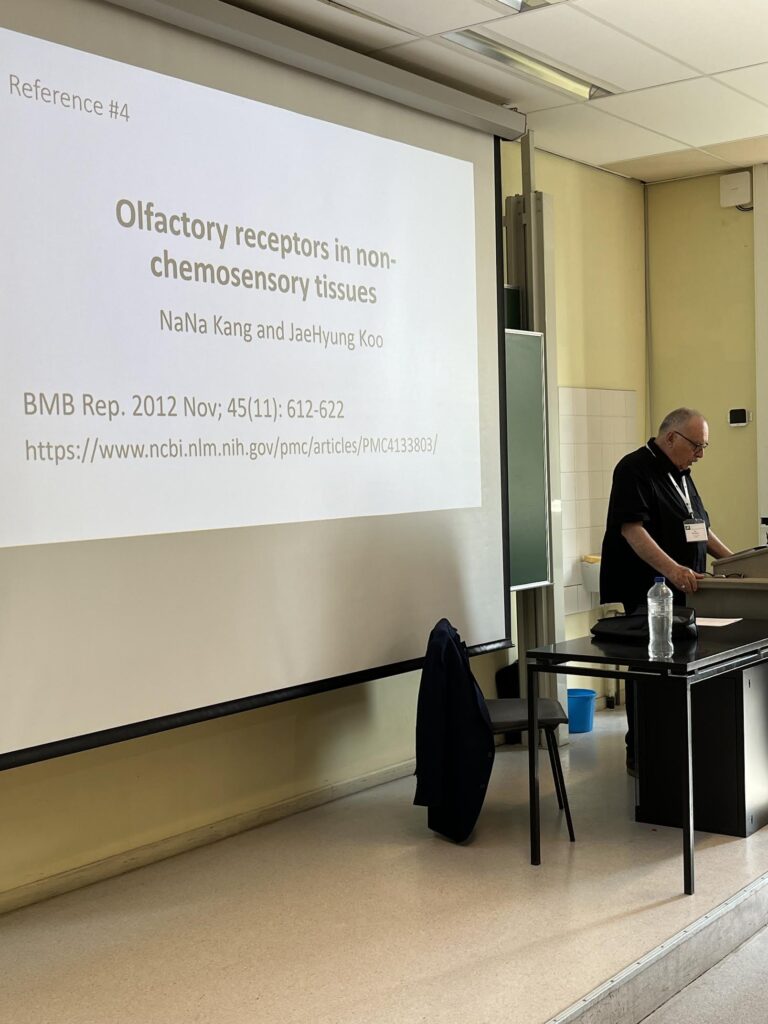Popper: Revolutionizing Scientific Inquiry with Practical Falsifiable Research
 In the realm of scientific inquiry, the name Karl Popper resonates profoundly, marking a pivotal shift in how researchers approach the validation of theories and hypotheses. Born in Austria in 1902, Popper’s contributions to the philosophy of science have left an indelible mark, particularly through his advocacy for falsifiability as a criterion for demarcating scientific claims from non-scientific ones. His ideas, encapsulated in the concept of “Practical Falsifiable Research,” continue to influence contemporary scientific practices and methodologies.
In the realm of scientific inquiry, the name Karl Popper resonates profoundly, marking a pivotal shift in how researchers approach the validation of theories and hypotheses. Born in Austria in 1902, Popper’s contributions to the philosophy of science have left an indelible mark, particularly through his advocacy for falsifiability as a criterion for demarcating scientific claims from non-scientific ones. His ideas, encapsulated in the concept of “Practical Falsifiable Research,” continue to influence contemporary scientific practices and methodologies.
At the heart of Popper’s philosophy is the assertion that for a theory to be considered scientific, it must be falsifiable. This means that there should be a conceivable observation or experiment that could prove the theory wrong. Unlike verification, which seeks to confirm a theory through supportive evidence, falsification emphasizes the importance of rigorous testing and the willingness to discard theories that do not hold up under scrutiny. Popper believed that science progresses through a cycle of conjectures and refutations, where bold hypotheses are proposed and subsequently challenged.
One of the most significant implications of Popper’s philosophy is the encouragement of critical thinking within the scientific community. By prioritizing falsifiability, researchers are prompted to design experiments that actively seek to disprove their hypotheses rather than merely confirm them. This approach fosters a culture of skepticism and inquiry, where scientists are encouraged to question established theories and explore new avenues of understanding.
In practical terms, the application of Popper’s ideas can be seen across various fields of research. In psychology, for instance, theories of human behavior must be formulated in a way that allows for empirical testing and potential refutation. Theories that cannot be tested or that rely solely on anecdotal evidence fall short of Popper’s standards. This has led to the development of more robust experimental designs and methodologies that prioritize empirical validation.
The realm of social sciences has also been significantly influenced by Popper’s philosophy. In sociology and economics, researchers are increasingly aware of the necessity to construct theories that can be empirically tested. The emphasis on falsifiability has encouraged scholars to develop models that can be challenged and refined based on real-world data. This shift has not only enhanced the credibility of social science research but has also facilitated interdisciplinary collaborations, as researchers from various fields recognize the value of rigorous testing and validation.
However, the adoption of Popper’s principles has not been without its challenges. Critics argue that the strict application of falsifiability can be limiting, particularly in fields such as biology and astrophysics, where some theories may be difficult to test directly. The complexity of certain phenomena can render them resistant to straightforward falsification, leading to debates about the applicability of Popper’s criteria in these domains. Nonetheless, proponents maintain that even in such cases, the spirit of falsifiability can guide researchers toward more rigorous methodologies and critical examination of their assumptions.
One notable example of Popper’s influence can be seen in the realm of climate science. Theories regarding climate change, its causes, and its impacts have been subjected to extensive scrutiny and debate. Researchers are continually testing hypotheses related to climate models, seeking to refine their understanding of complex environmental systems. By adhering to Popper’s principles, climate scientists emphasize the importance of evidence-based conclusions and remain open to revising their theories in light of new data.
In the world of technology and innovation, the principles of Practical Falsifiable Research have also found a foothold. The tech industry is characterized by rapid experimentation and iteration, where ideas are frequently tested in the market. Startups often employ a “fail fast” mentality, where hypotheses about user behavior or product viability are rigorously tested, and unsuccessful ideas are quickly abandoned. This approach mirrors Popper’s cycle of conjecture and refutation, allowing for agile development and adaptation in a fast-paced environment.
Moreover, the educational landscape has begun to embrace Popper’s philosophy as a means of fostering critical thinking skills among students. By encouraging learners to formulate hypotheses and engage in experiments designed to test their ideas, educators are instilling a mindset of inquiry and skepticism. This approach not only prepares students for careers in science and research but also cultivates informed citizens who can critically evaluate claims in an era of information overload.
As we navigate the complexities of modern research, the legacy of Karl Popper and his emphasis on Practical Falsifiable Research remains more relevant than ever. In a world where misinformation and unfounded claims can spread rapidly, the principles of falsifiability serve as a vital safeguard for scientific integrity. Researchers are tasked with the responsibility of upholding rigorous standards and ensuring that their work contributes meaningfully to the body of knowledge.
In conclusion, Karl Popper’s contributions to the philosophy of science have fundamentally reshaped our understanding of what constitutes valid scientific inquiry. His advocacy for falsifiability has fostered a culture of critical thinking, encouraging researchers across disciplines to rigorously test their hypotheses and remain open to revision. As we continue to grapple with complex questions and challenges, the principles of Practical Falsifiable Research will undoubtedly guide future generations of scientists in their quest for knowledge and understanding. By embracing Popper’s legacy, falsifiable.us we can ensure that the pursuit of truth remains a cornerstone of scientific endeavor, driving progress and innovation in an ever-evolving world.

